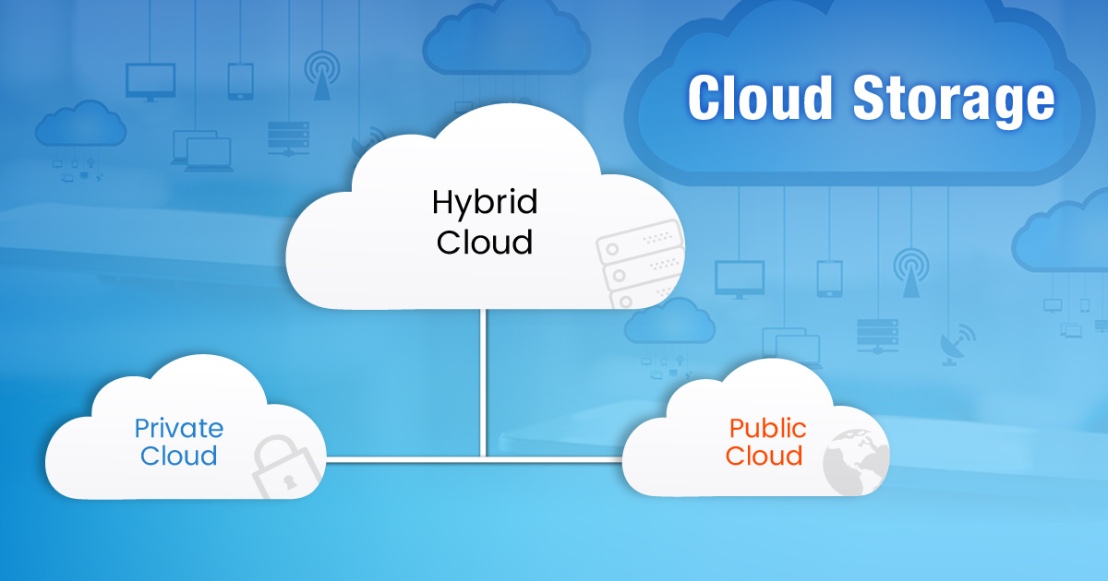Cloud architecture – the means of using and storing data over the internet rather than on a local hard drive – has benefits as well as drawbacks. Proponents of cloud computing services point to reduced environmental impact, cost effectiveness, and its ability to make data more mobile. Detractors cite security issues, records of poor customer service, and server downtime as serious downsides to using cloud computing.

Here is a quick look at the pros and cons of the three different forms of cloud storage:
Public Cloud
The public cloud – defined as a multi-tenant and/or shared environment – is the most well-known and widely used form of cloud-based storage, due to the ease of its set-up and use. Users are often attracted to the seemingly unlimited resources at their disposable, in addition to the pay-as-you-go payment model. A public cloud service is ideal for businesses that do not wish to spend money on physical storage hardware.
Depending on your business data needs and other requirements, however, this model has some significant drawbacks:
- Long-term costs are significantly higher for the public model than the private model. A common complaint is the hidden cost of data migration.
- Public clouds also bring safety concerns, since using them requires businesses to give up direct oversight of their data’s security. As a result, companies with compliance concerns may not be well suited to public cloud computing.
Private Cloud
In the private model, only designated users can access the cloud. This is a far cry from the shared situation intrinsic to the public cloud. But it offers full control over data security, greater customization toward a specific business need, and increased data integrity. Private clouds are the only choice for those businesses where safety and security of information is paramount.
However, be mindful of the downsides to private clouds. A private cloud needs continual oversight by individuals with IT expertise. With a private cloud, companies must purchase and maintain their own hardware. On one hand, this makes the cost of storage lower compared to using a third party. But on the other hand, scalability is limited by how much physical storage space the company possesses. These factors make the private cloud model expensive and, thus, best suited to large companies.
Hybrid Cloud
The hybrid cloud, a model that seeks to combine elements of public and private clouds into a workable fusion, is growing in popularity. Companies will host highly sensitive data on a private cloud while storing less confidential information on a public one. This carries the benefit of cost effectiveness as well as the potential to achieve an ideal balance between data accessibility and safety.
The hybrid approach to cloud storage continues to suffer from compliance, complexity, and reliability concerns:
- Hybrid cloud users must ensure all services continue to adhere to the company’s compliance policies and all applications/information stay current.
- The connected system between a public and private cloud can get complex. For example, storing an application on a private cloud while keeping its data on a public one results in an organizational nightmare as well as possible functionality issues. Companies that attempt to use a hybrid system without a firm understanding of how to navigate these complexities could face serious problems, such as data losses or breaches.
- Reliable service is vital to any business, yet non-functioning servers will easily derail this endeavor. Creating a multiplex of cloud servers rather than relying on just one is essential to maintaining the consistency users demand.
While the versatility of the hybrid cloud looks promising, it is not a perfect solution. In fact, there is no perfect solution when it comes to the cloud. Every business has different desires, concerns, and requirements that it must weigh when deciding which form of the cloud is best for them.
About AllianceTek
AllianceTek employs a global team of more than 100 skilled developers and consultants who specialize in cloud computing solutions and provide comprehensive, scalable, and extensible development roadmaps. We keep up to date with the latest technology platforms and bring originality and innovation to the IT business solutions we develop. We believe it takes a global village to create technology that’s on-time, on-budget, and on-target with your needs.